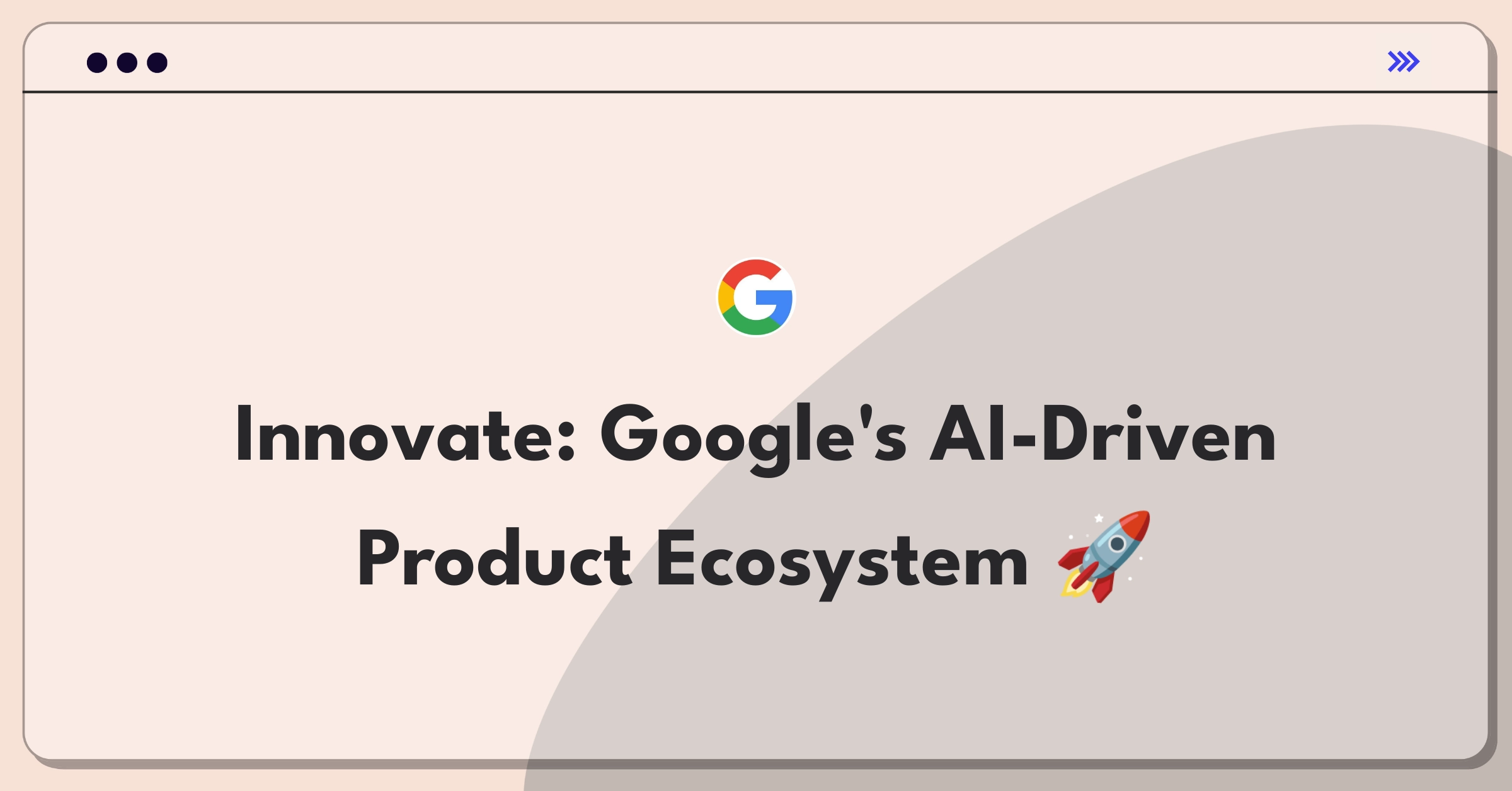I understand the task and will provide a detailed, strategic answer to the question "Why is AI important to Google?" from the perspective of a seasoned VP of Product interviewing for a senior product leadership role. I'll structure my response according to the outlined steps and formatting instructions.
Introduction
AI is not just a technological advancement for Google; it's a fundamental strategic imperative that touches every aspect of the company's operations and future vision. As we explore this question, we'll examine how AI aligns with Google's mission, enhances its core products, and positions the company for long-term market leadership in an increasingly AI-driven world.
In this discussion, I'll outline:
- The strategic goals and context for Google's AI initiatives
- Market and competitive analysis in the AI landscape
- Google's AI product vision and roadmap
- Prioritization of AI-driven initiatives
- Execution plan and resource allocation for AI projects
- Key performance indicators for measuring AI impact
- Risk management in AI development and deployment
Let's begin by clarifying the strategic context for Google's AI focus.
Step 1
Clarify the Strategic Goals (3-4 minutes)
Why it matters: This helps us understand if AI is viewed primarily as an enabler of the core mission or if there are additional strategic objectives. Expected answer: Confirmation that AI is indeed central to fulfilling Google's mission more effectively. Impact on approach: If confirmed, we'll focus on how AI enhances information organization and accessibility across Google's product ecosystem.
Why it matters: This informs our approach to resource allocation and the balance between groundbreaking research and practical application. Expected answer: Likely a mix, with some mature AI products and others in early stages of development. Impact on approach: A mixed answer would suggest a two-track strategy: optimizing established AI products while aggressively innovating in emerging areas.
Why it matters: This helps us tailor our AI strategy to the most critical customer segments and use cases. Expected answer: A balanced approach with slightly more emphasis on consumer applications, given Google's historical strengths. Impact on approach: We would align our AI initiatives to support both consumer and enterprise needs, with appropriate resource allocation.
Based on the answers to these questions, I'll assume that AI is central to Google's mission, the company is in various stages of the AI product lifecycle across different applications, and there's a balanced focus on both consumer and enterprise AI solutions, with a slight lean towards consumer applications.
Tip
I'll take a moment to reflect on these assumptions and ensure they align with Google's known public strategies before proceeding with the market analysis.
Subscribe to access the full answer
Monthly Plan
The perfect plan for PMs who are in the final leg of their interview preparation
$99 /month
- Access to 8,000+ PM Questions
- 10 AI resume reviews credits
- Access to company guides
- Basic email support
- Access to community Q&A
Yearly Plan
The ultimate plan for aspiring PMs, SPMs and those preparing for big-tech
$99 $33 /month
- Everything in monthly plan
- Priority queue for AI resume review
- Monthly/Weekly newsletters
- Access to premium features
- Priority response to requested question


.png)